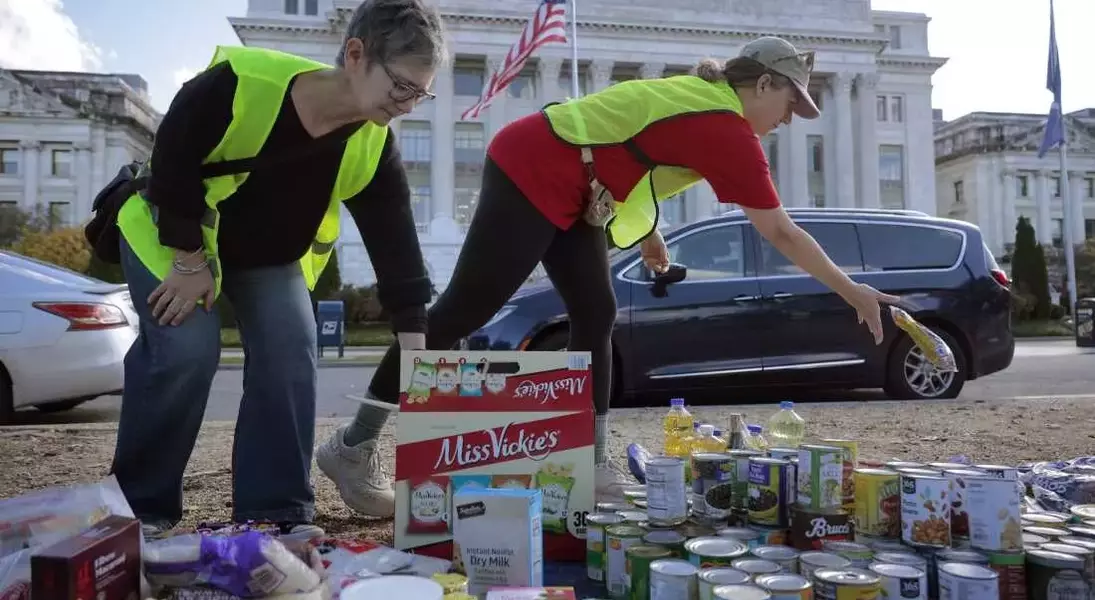
A federal judge has mandated that the Trump administration formulate a plan by Monday to address the provision of Supplemental Nutrition Assistance Program (SNAP) benefits. This directive arises from a lawsuit filed by numerous states against the U.S. Department of Agriculture concerning the suspension of this critical anti-hunger program. While acknowledging the potential hardship for millions, the judge opted against an immediate temporary restraining order, asserting that subsequent payment resumption could mitigate irreversible harm. The court has affirmed that the Agriculture Department must utilize emergency funds to sustain SNAP and has indicated the availability of other legal financial resources, deferring to the administration on the specifics of benefit distribution.
Judicial Intervention in Food Assistance
A recent federal court decision has placed a stringent deadline on the Trump administration, requiring a clear strategy for the distribution of SNAP benefits. This judicial action was prompted by a coalition of Democratic-governed states that initiated legal proceedings against the U.S. Department of Agriculture. The states contested the administration's move to halt the nation's most extensive program aimed at combating hunger, labeling the suspension as unlawful. The court's ruling, however, did not include an immediate injunction to restore payments, based on the premise that any harm inflicted could be reversed once benefits are eventually reinstated. This situation underscores the ongoing legal and humanitarian complexities surrounding food assistance policies.
The judicial directive explicitly states that the Trump administration must, by no later than Monday, present a comprehensive approach to ensure continued or resumed provision of SNAP food benefits to approximately 42 million individuals living on low incomes. The presiding judge, Indira Talwani, recognized the immediate consequence of this timeline, acknowledging that millions of people would be left without this vital assistance starting the upcoming Saturday. Despite this critical impact, the court decided against issuing a temporary restraining order. The judge's rationale was that, even with a temporary interruption, the eventual resumption of these payments could prevent any permanent detriment to the recipients. This legal development highlights the precarious position of vulnerable populations reliant on federal aid and the significant legal challenges that can arise from administrative decisions impacting widespread social welfare programs.
Ensuring Continuity of SNAP Services
In response to the legal challenge, the federal judiciary has underscored the imperative for the Agriculture Department to leverage emergency funding mechanisms to maintain the operational continuity of the SNAP program. The court's decision, while not imposing a direct order for immediate resumption, clearly stipulated that the administration is legally obligated to explore and utilize available financial avenues to support the program. This ruling emphasizes the governmental responsibility to safeguard essential services for its most vulnerable citizens, particularly in times of administrative or political uncertainty. The ball is now in the administration's court to determine the extent and manner of benefit distribution, navigating the legal and ethical implications of its choices.
Judge Talwani's ruling further clarified that the Agriculture Department is not only permitted but is indeed required to draw upon emergency funds to ensure that SNAP continues to function. Moreover, the judge highlighted that there are other legally accessible financial resources that could be allocated to sustain the program. However, the precise determination of the benefit amounts to be disbursed was left to the discretion of the administration. This aspect of the ruling gives the executive branch considerable latitude in formulating its plan, but it also places the onus on them to act responsibly and effectively. The ongoing dialogue between the judiciary and the executive branch, catalyzed by the states' lawsuit, illustrates the intricate balance of powers and the critical role of the courts in upholding the welfare of the populace when government actions are challenged.
